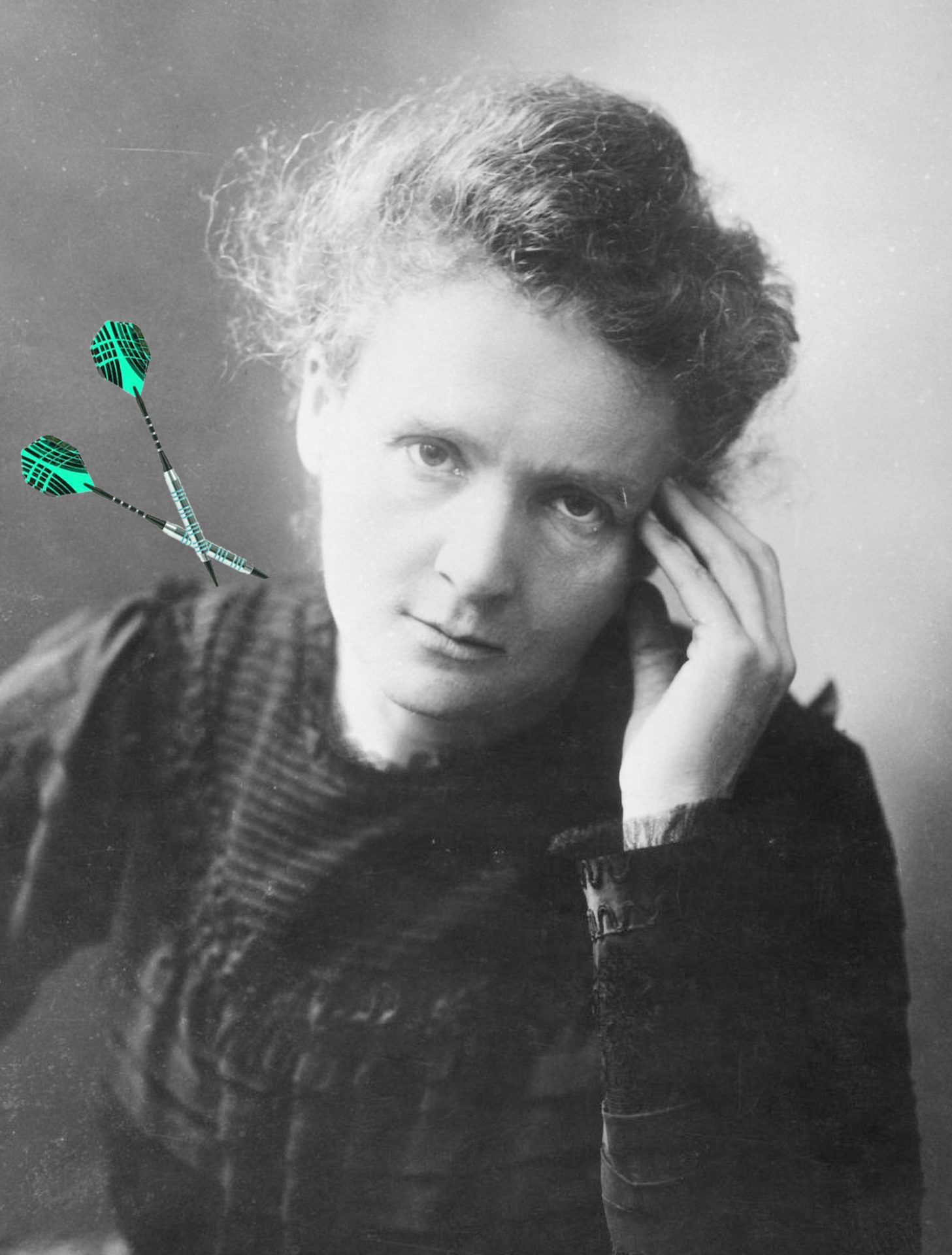Are you the victim of hate mail or intimidating phone calls? The university is here to help
-
 Image via Wikicommons (edited by Vox)
Image via Wikicommons (edited by Vox)
Researchers at Radboud University sometimes fall victim to hate mail, intimidating letters and even threatening phone calls. While most researchers are satisfied with the way the university handles these incidents, there has also been some criticism. 'I've often felt alone.'
‘I’m going to burn your house down,’ and ‘I’d do her.’ Radboud researchers aren’t immune to sexist comments, derogatory e-mails or insults on social media. Roughly 43% of Dutch researchers have received threats of this nature, according to research by the online platform ScienceGuide.
The Association of Universities in the Netherlands (VSNU) will publish a handbook in September to support researchers who feel intimidated or threatened. This practical guide explains what the university can do and what researchers can do to arm themselves against hatred and intimidation from outside.
In part one of this two-part series on intimidation, Vox spoke to seven Radboud researchers about their experiences with online hate, intimidation and threats. Part two focuses on what the university is doing to help researchers and whether these efforts are enough.
Timing
Martijn de Koning is surprised by the timing of the VSNU publication. ‘I can’t help but wonder why, after all this time.’ He thinks it may be partly in response to Vizier op Links, a radical right-wing platform known for putting stickers on the doors of various politicians and scientists to warn them that they’re being watched. Nadia Bouras, a migration and integration researcher at Leiden University, received such a sticker. ‘It’s definitely intimidating,’ says De Koning, ‘but it’s not new.’
According to the VSNU spokesperson, threatening and intimidating researchers has become more or less commonplace, although the association doesn’t have exact figures on this. He refers to the situation in Belgium, where virologist Marc van Ranst received death threats from a far-right militant, to the treats received by OMT members, and to the sticker campaign by Vizier op Links. ‘Experts in the field of Islam and gender studies are also frequent victims,’ says the VSNU.
‘Intimidation is completely at odds with what we as scientists represent,’ continues the spokesperson. ‘Sharing our knowledge and participating in public discourse is part of our scientific duty; researchers are expected to share their knowledge with the public domain.’ The VSNU suspects that the ‘known’ threats, such as those made by Vizier op Links, are just the tip of the iceberg. ‘The last thing we want is for researchers to think they can’t speak freely; that they can’t go on TV or share something on social media.’ It may be too late for this, according to the ScienceGuide study. Even researchers who have never received threats think twice before making a media appearance.
‘The university alerted security’
Most of the researchers that Vox spoke to are happy that the VSNU even has a plan. De Koning think it’s an excellent idea. ‘As long as they focus on women and people of colour.’ Many of the messages aimed at women and people of colour have sexist or racist overtones, says De Koning. ‘That’s another form of intimidation they have to deal with.’ The ScienceGuide study confirms this. It found that women are far more likely than men to be disqualified based on gender alone.
Expressions of support
Most Radboud researchers are satisfied with the way the university helped them after experienced intimidation. Ira Helsloot received threatening messages after he spoke out against the Covid restrictions. The rector magnificus and the dean personally approached him to express their support. ‘When your bosses say that, it really means something,’ he says. ‘I think the VSNU plan is less important that expressing clear support for someone.’
De Koning has received hand-written notes in the past in ‘shockingly neat handwriting.’ ‘I reported it to the university, even though I didn’t find it particularly threatening. The university then alerted security.’
When he was really threatened a few years ago, he found the university’s response to be adequate. ‘The people at Science Communication always make sure you’re okay and even call months later to check in again. I appreciate that. We also talked about filing a police report at the time. I remember thinking that that if the police need to be involved, that should be the responsibility of the university. It shows they’re willing to stand up for their employees. The university agreed with me.’
Assistant Professor Saskia Glas was extremely pleased with how the university responded after her paper on homosexuality in Arab countries sparked a Twitter storm and online backlash on the GeenStijl website. ‘We published our press release through the communication department, so they immediately knew what was going on. Rector Magnificus Han van Krieken called me the next day to let me know I had their full support and to ask how they could help.’
‘I’ve extremely felt alone in the past’
After receiving intimidating e-mails, an anonymous female researcher at the Faculty of Law approached the dean herself. ‘I explained the problem to them. I wasn’t looking for help, I just wanted to let them know what was going on.’
Soon after, the VSNU message was published. The researcher was pleased with the timing. ‘I was a little embarrassed that I let it get to me so much.’ According to the researcher, the goal of insulting or derogatory e-mails is to damage your reputation. ‘And as a researcher, your reputation is all you have. Your integrity makes you vulnerable.’
Training programmes
It’s a good thing that the university is standing up for its employees, says an anonymous male professor from the Nijmegen School of Management. He’s felt extremely alone in the past. ‘I’ve never had to file a police report,’ he says, ‘but I have been concerned with how close it has come a few times. I’ve worried that they might find out where I live or something.’
When asked if he’s ever considered reporting these incidents, he says: ‘To who? Science Communication isn’t equipped to help you with intimidation or threats. I’d like to see the university offer some real protection,’ he says. According to the professor, one solution would be to organise training courses in dealing with intimidation. ‘As far as I know, something like this isn’t available.’
Social media
All of the researchers Vox spoke to said that most of the hateful and intimidating messages they received were in response to them promoting their research in newspapers and talk shows and on sites like LinkedIn and Twitter.
Promoting research findings is an important part of the job, says the anonymous male professor we spoke to. ‘For a while, media coverage was heavily promoted. The university always pushes for more press, especially considering that media attention is linked to rankings and awards. But you also have to consider the consequences of putting yourself out there. Researchers have to have thick skin. For a long time now we’ve failed to consider the other side of the coin.’
‘You also have to consider the consequences of putting yourself out there’
The anonymous female researcher we spoke to at the Faculty of Law thinks the university could do more on social media. ‘Researchers can block and report individual users, but the university could also stand up for us and say: “Wait a minute, that’s not how we treat our people.:”‘
‘Communication officers at www.rechtspraak.nl actively monitor what people say about things like court rulings on Twitter,’ the researcher continues. ‘Rulings tends to spark a lot of outrage.’ According to the researcher, the university should follow this example and respond to negative messages with facts and information about the ruling. ‘I think that sends a powerful message.’
University response
‘Researchers should feel comfortable sharing their findings with the world,’ says university spokesperson Martijn Gerritsen. ‘The university has a shared responsibility to create a climate that is conducive of this.’
Gerritsen explains that the university is currently drafting a document with guidelines on dealing with intimidation. This includes prevention strategies for researchers who plan to publish something that will undoubtedly be considered controversial. ‘We encourage researchers to search for themselves online to see what comes up and whether they can remove any private or sensitive information,’ says Gerritsen. When the VSNU message was published, Gerritsen shared the document with the association. The university is now awaiting the VSNU’s plan.
The social media team does not always intervene when a researcher is targeted on social media. ‘You always have to ask yourself: what’s the smartest thing to do?’ says Gerritsen. ‘Experience has shown that responding sometimes fuels the fire.’ He suggests that researchers report hateful and intimidating messages to their supervisors. ‘They can also call the communications department, who can help them come up with an effective plan.’




